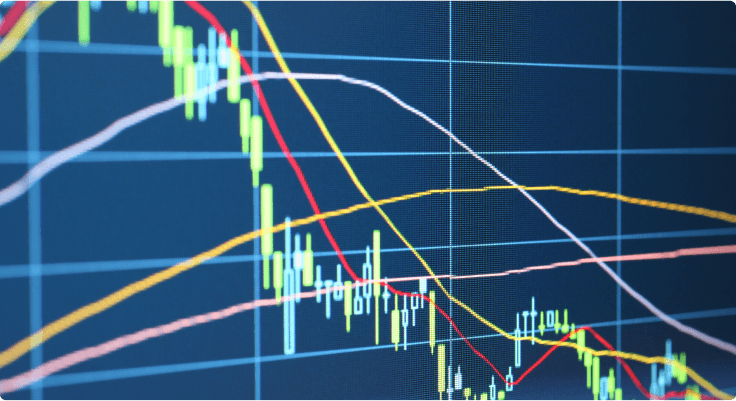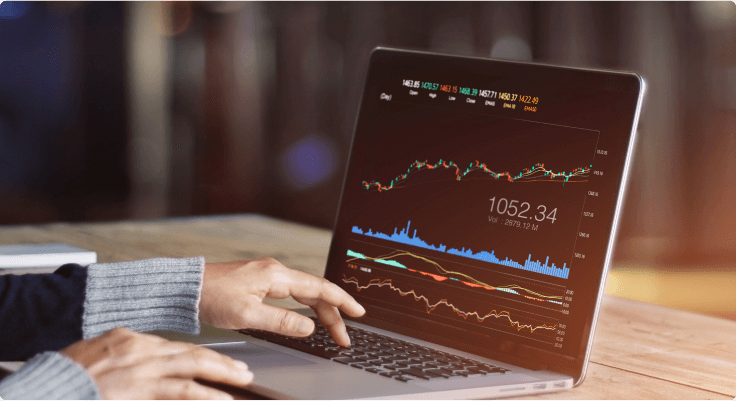Scenario #1: If you want exposure to price movements in cryptocurrencies without holding any.
#1 Protect a portion of your assets from inflation
The latest rally in cryptocurrencies is arguably due to a wave of institutional interest. The volatility of Bitcoin however, tends to make its addition to any portfolio a relatively difficult affair to justify to shareholders, colleagues, or any other stakeholders in so-called institutional investors. Why are they buying it now?
The simple answer is this:
In 2020 alone, the USA has printed around 23% of all US Dollars ever created just to combat the economic fallout from Covid-19.

#2 Allocating a portion of your portfolio to cryptocurrencies can boost portfolio yield
If managed correctly, cryptocurrencies can boost your portfolio yield even if you buy at all-time highs.
You can test it out yourself – a small weightage of around 2.5% – 5% of Bitcoin in your portfolio, bought at all-time highs, would return the following with the current price of Bitcoin in 2021.
| Year | Date of Highest Price in the Year | Price | Annualised Returns | Total Returns |
| 2014 | 14th Jan | $914.51 | +67.54% | +3,727.19% |
| 2015 | 15th Dec | $462.96 | +132.63% | +7,460.05% |
| 2016 | 28th Dec | $967.36 | +140.72% | +3,518.09% |
| 2017 | 17th Dec | $19,041.63 | +20.70% | +83.81% |
| 2018 | 5th Jan | $16,753.24 | +27.19% | +108.91% |
| 2019 | 26th June | $12,733.71 | +207.21% | +93.42% |
| 2020 | 31st Dec | $28,996.28 | >+1,000% | +20.71% |
Our calculations above assumes $35,000 as the price of Bitcoin, with an end-date of 28th January 2021. Through the chart, we will find that Bitcoin has delivered wildly varying returns over the years but will have consistently delivered positive returns even if you buy at the highest price every single year.
On correct management however, proper risk management of a portfolio would see investors not including more than 2.5% – 5% of their portfolio to volatile assets such as Bitcoin. Although it now presents a lucrative picture when we look at Bitcoin’s returns over the years, the prudent investor will recognise that past performance does not guarantee future results.
#3 Cryptocurrencies may be an effective portfolio diversifier
An effective portfolio should have assets that have low-to-no correlation with each other. What then, is the correlation of cryptocurrencies such as Bitcoin, with traditional financial assets such as gold or equities?
Looking short-term, recent crises that result in liquidity shocks such the US market rout in March 2020, has seen the relatively high correlation between cryptocurrencies and traditional investments. During that period, we saw Bitcoin suffer heavy declines during the same period as the rest of the market. Bitcoin also seemed to rise and fall in response to US government stimulus measures in late-2020, suggesting higher correlation than previously thought, at least for now.
When we look longer-term however, studies have shown that cryptocurrencies have near-zero to negative correlations to many traditional financial assets such as gold, the S&P500, US Treasuries, and crude oil. A recent study released by Fidelity in October 2020 after the negative pandemic shock still showed that the correlation of Bitcoin with traditional assets seems to be 0.11 (as opposed to 1.0 – a perfect correlation where the price of both assets move together). As such, a perfectly plausible case may be made for adding cryptocurrencies to long-term, well-diversified portfolios for investors looking to hedge against a variety of scenarios.












